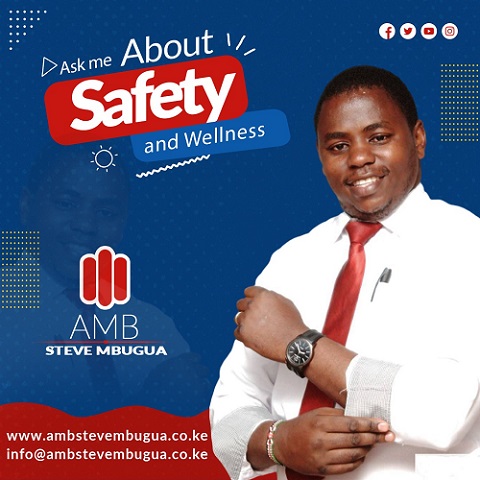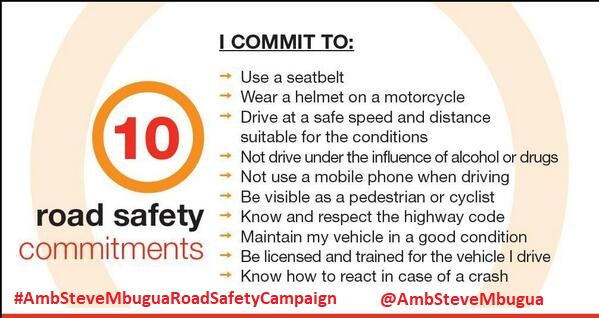Church ushering is a vital ministry that contributes significantly to the worship experience. An effective church usher serves as a bridge between the congregation and the church leadership, ensuring that services run smoothly and that attendees feel welcome and comfortable. Ambassador Steve Mbugua, a renowned trainer, advisor, and author on church ushering, has detailed the principles and practices of this ministry in his book, “The Art of Effective Church Ushering.”
Biblical Examples of Church Ushering
The Levites: In 1 Chronicles 23:28-32, the Levites were responsible for helping with the work of the house of the Lord. They assisted in temple maintenance, preparation of offerings, and ensuring order, much like modern church ushers.
Nehemiah’s Gatekeepers: In Nehemiah 7:1-3, gatekeepers were appointed to watch over the gates of Jerusalem. Their role was to ensure security and order, akin to ushers managing church entrances and exits.
The Servants at the Wedding in Cana: In John 2:1-11, Jesus performed His first miracle at a wedding. The servants played a crucial role by following Jesus’ instructions, illustrating the importance of obedience and service in ushering.
The 72 Disciples: In Luke 10:1-12, Jesus sent out 72 disciples to prepare the way for His coming, ensuring the towns were ready to receive Him. This preparation work is similar to ushers preparing the church for services.
Moses and the Tent of Meeting: In Exodus 33:7-11, Moses set up the Tent of Meeting, and the people would stand at their tents to watch. This organized approach to worship reflects the role of ushers in guiding and directing the congregation.
David’s Appointed Musicians and Gatekeepers: In 1 Chronicles 15:16-24, David appointed musicians and gatekeepers for the ark of the covenant. Their roles included maintaining order and facilitating worship, similar to modern ushering duties.
The Feeding of the 5000: In Mark 6:39-40, Jesus organized the crowd by having them sit in groups before feeding them. This act of organizing large crowds can be likened to the ushering role of managing congregation seating.
Roles and Responsibilities of Church Ushers
Greeting Attendees: Ushers welcome churchgoers as they arrive, making them feel comfortable and valued.
Distributing Materials: Hand out bulletins, hymnals, and other materials necessary for the service.
Assisting with Seating: Help attendees find appropriate seating, especially in a crowded service.
Managing the Offering: Coordinate the collection of tithes and offerings, ensuring it is done orderly.
Providing Assistance: Offer help to those in need, such as the elderly, disabled, or newcomers.
Maintaining Order: Ensure the service runs smoothly by managing movement and addressing disruptions.
Emergency Response: Be prepared to handle emergencies, such as medical issues or security threats.
Ushering During Special Events: Provide additional support during weddings, funerals, and other special services.
Guiding Communion: Assist in the orderly distribution of communion elements.
Assisting the Pastor: Help the pastor and other church leaders as needed, such as by distributing notes or managing the stage.
Cleaning and Setup: Ensure the church is clean and set up appropriately before and after services.
Parking Assistance: Direct vehicles in the parking lot to ensure efficient and safe parking.
Providing Information: Answer questions from attendees and provide directions to various church facilities.
Monitoring the Premises: Keep an eye on the church grounds to ensure safety and security.
Coordinating with Other Ministries: Work closely with other church teams, such as the hospitality and security teams, to ensure a seamless worship experience.
Qualifications of Church Ushers
Strong Faith: A deep and active faith in God and a commitment to the church’s mission.
Good Communication Skills: Ability to communicate clearly and effectively with attendees and church leadership.
Physical Fitness: Able to stand for long periods and move around the church premises.
Dependability: Reliable and punctual, ensuring they can be counted on to fulfill their duties.
Integrity: Honest and trustworthy, handling responsibilities with care and respect.
Professionalism: Maintain a professional demeanor in all interactions.
Empathy: Ability to understand and share the feelings of others, providing a welcoming environment.
Attention to Detail: Notices and addresses even the smallest details to ensure smooth operations.
Problem-Solving Skills: Adept at identifying and resolving issues quickly and efficiently.
Teamwork: Works well with other ushers and church staff, fostering a collaborative environment.
Conflict Resolution Skills: Capable of managing and resolving conflicts in a calm and effective manner.
Knowledgeable: Familiar with church protocols, emergency procedures, and event schedules.
First Aid Certification: Basic knowledge of first aid to handle minor medical emergencies as an added advantage.
Multilingual: Ability to speak multiple languages is an asset in diverse congregations.
Customer Service Skills: Experience in providing excellent customer service.
Technical Skills: Comfortable using technology for tasks such as operating audio-visual equipment.
Flexibility: Able to adapt to changing situations and handle unexpected events.
Leadership: Ability to lead and manage other ushers, especially during large events.
Differences Between Ushering and Other Church Roles
Ushering vs. Protocol:
Ushering: Focuses on seating, greeting, and assisting the congregation.
Protocol: Involves managing VIPs, maintaining order during events, and ensuring adherence to ceremonial standards.
Ushering vs. Traffic Marshal:
Ushering: Primarily concerned with activities inside the church.
Traffic Marshal: Manages the flow of vehicles and pedestrian safety outside the church.
Ushering vs. Security Team:
Ushering: Ensures the service runs smoothly and assists attendees.
Security Team: Focuses on protecting the congregation and property from threats.
Ushering vs. Sanctuary Keepers:
Ushering: Engages directly with attendees, guiding them through the service.
Sanctuary Keepers: Maintain the cleanliness and readiness of the worship space.
Ushering vs. Hospitality Team:
Ushering: Manages the flow of people and helps during services.
Hospitality Team: Focuses on providing refreshments and a welcoming environment outside the sanctuary.
Ushering vs. Bodyguards:
Ushering: Facilitates the congregation’s worship experience.
Bodyguards: Provide personal security to church leaders and VIPs.
Ushering vs. Event Planners:
Ushering: Operates mainly during the actual service.
Event Planners: Involved in the detailed planning and coordination of church events.
Latest Trends in Church Ushering
Digital Check-In Systems: Using technology to streamline the check-in process for attendees.
Online Training Programs: Offering virtual training sessions for ushers to enhance their skills.
Health and Safety Protocols: Implementing enhanced health measures, especially post-pandemic.
Wearable Technology: Using devices such as earpieces for better communication among ushers.
Multilingual Services: Providing assistance in multiple languages to cater to diverse congregations.
Cultural Sensitivity Training: Educating ushers on cultural differences and appropriate responses.
Eco-Friendly Practices: Encouraging sustainable practices, such as digital bulletins.
Personalized Welcoming: Creating personalized experiences for first-time visitors.
Community Engagement: Ushers participating in community outreach and service projects.
Emergency Preparedness: Regular drills and training for handling emergencies.
Professional Attire: Adopting a standard dress code for ushers to enhance professionalism.
Feedback Systems: Implementing feedback mechanisms to continually improve ushering services.
Examples of Cases Where Ushering Went Bad and Had Mistakes
Late Arrivals: Ushers arriving late caused confusion and disorganization at the start of the service.
Miscommunication: Important information was not relayed properly, leading to seating issues.
Inadequate Training: Untrained ushers were unable to handle a large crowd effectively.
Ignoring Health Protocols: Failure to enforce health guidelines resulted in safety concerns.
Improper Attire: Ushers dressed inappropriately, affecting the church’s image.
Lack of Empathy: Ushers failed to provide necessary assistance to elderly or disabled attendees.
Seating Disputes: Mishandling seating arrangements caused conflicts among attendees.
Technical Failures: Inability to operate audio-visual equipment disrupted the service.
Emergency Mishandling: Poor response to a medical emergency led to further complications.
Overcrowding: Ushers allowed the sanctuary to become overcrowded, causing discomfort.
VIP Neglect: VIP guests were not given proper attention, leading to embarrassment.
Poor Coordination: Lack of coordination with other teams resulted in logistical issues.
Neglecting Feedback: Ignoring attendee feedback led to repeated mistakes.
Unfriendly Attitude: Ushers displaying unwelcoming behavior deterred visitors.
Lack of Preparation: Insufficient preparation for a special event caused disorganization.
For more insightful articles and books on church ushering and protocol matters, visit my website or contact me directly via WhatsApp at +254724036078, email at info@ambstevembugua.co.ke, and all social media platforms as @Ambstevembugua. Don’t forget to share this document with your colleagues and friends to promote better church ushering practices. Thoroughly study my literature on effective church administration, train rigorously, and read more materials on ushering, protocol, safety, and security matters to enhance your ministry.
By understanding and implementing these detailed guidelines, church ushers can significantly improve their effectiveness, ensuring a welcoming, orderly, and secure environment for worship.
READ MORE
Church Security You tube Video
Empowering Church Ushering Team
Church Protocol Guide and Handbook
Globally Recognized Church Ushering Trainer and Advisor
Church Traffic Marshals and Controllers
Church Sanctuary Keepers
Church Hospitality and Catering
Road Safety



















